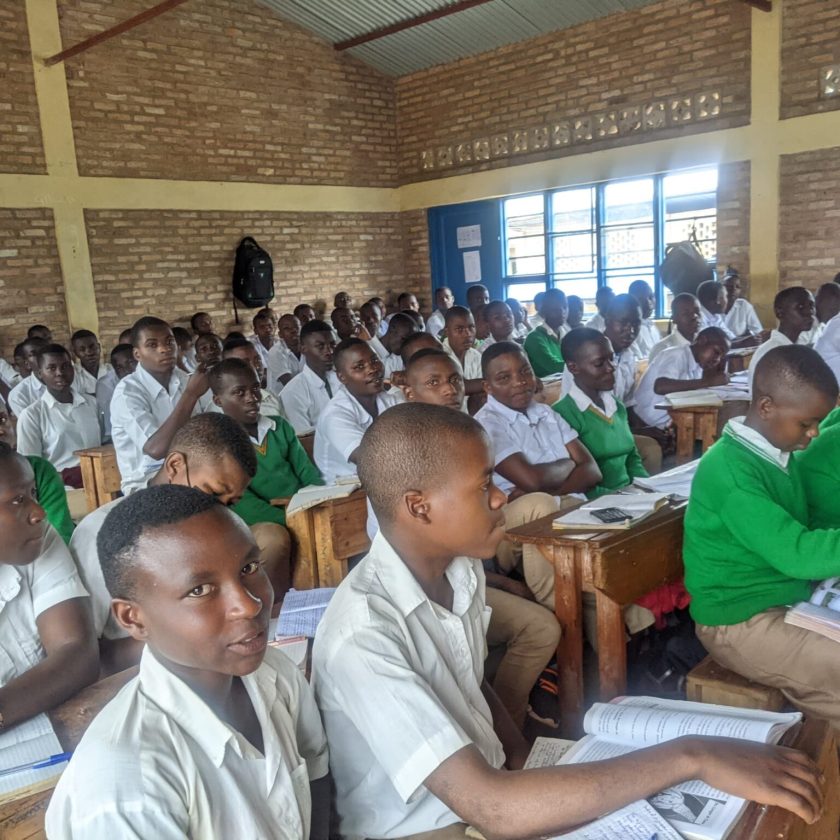By Diane NKUSI NIKUZE
In the heart of Rwanda’s social tapestry lies a community often overlooked, yet essential in the narrative of progress: children with disabilities. The findings from the 2022 Rwandan census provide a revealing insight into their journey, illuminating both the challenges they face and the strides made towards inclusive empowerment.
Prevalence of Disabilities
The 2022 census paints a picture of resilience within Rwanda’s diverse landscape, identifying 391,775 individuals aged 5 years and above living with disabilities. These figures, accounting for 3.4% of the population, showcase the varied distribution across provinces and rural-urban areas. Notably, the Southern Province records the highest prevalence at 3.7%, highlighting the geographic dynamics of disability distribution.
The 5th Thematic report also highlights the distribution of the children with disabilities in Rwanda. The number of children with disabilities stands at 44.5% countrywide while female children at 49.97% and their male counterparts at 50.03%.
In rural areas the figures stand at 46.1% and in cities at 40.5%. it should be noted that, Nyagatare district has the largest share of the population of children with disabilities Disabilities with 47.7% of the total.

Educational Access and Literacy Rates
Education serves as a cornerstone for empowerment, yet children with disabilities often encounter formidable barriers. The data reveals disparities in access: 34.9% of children with disabilities have no formal education compared to 13.9% without disabilities. While strides have been made, challenges persist, especially in rural areas where access to facilities remains limited.
Primary &Secondary School Net Attendance Rates for Children by Disability Status
Challenges Faced
Beyond statistics lie the profound challenges faced by these children. Discriminatory practices, limited facilities, and social stigma hinder their path to education and societal integration. Rural-urban divides amplify these obstacles, underscoring the need for tailored support and infrastructure development.
Obstacles facing children
Children with disabilities face day to day obstacles and challenges like accessing specialized learning material, Stigma, etc.
Testimonies from parents
One Uwimana Alice, From Rwamagan district, Fumbwe sector, Nyakagunga Cell, a parent of a child with communication and mobility disability says; “my child is 12 years old and he is still in primary two (P 2) this is due to the schools are usually very far from home. I also can’t afford the transport costs to take my child far from home.”
She is thankful for the supporters who managed to pay for her child’s school bus transportation fees. Another challenge is that she can’t help her child to revise her notes when back from school so the child is far behind from his age in school attendance.
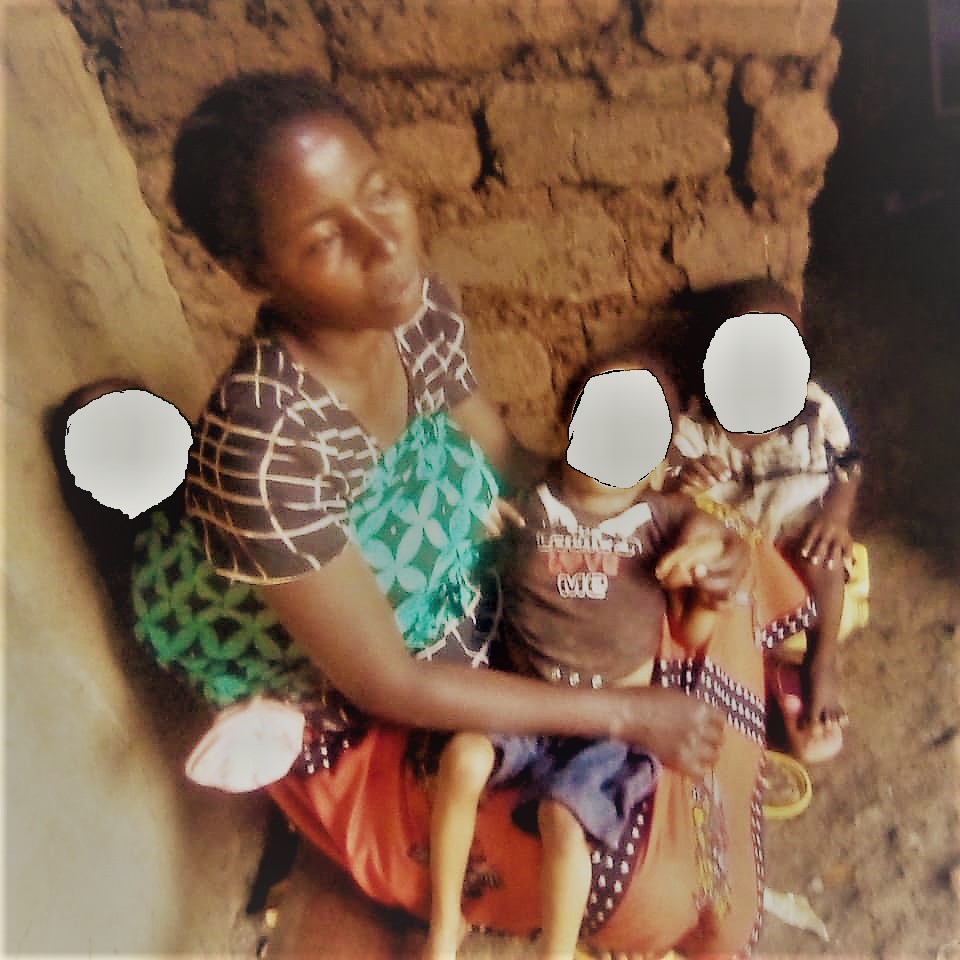
Uwimana says; “Still now we have neighbors who face the same challenge of having children with disabilities and they can’t afford to pay for their education needs.” She adds.
Kalinda John, a parent from Kayonza district, Kabarondo Sector, has a daughter with cognitive disability (Autism), he says the child is not going to school because, he couldn’t afford to pay and there is not a single Autism child care school in their area.
“I know some families who don’t have means to take care of children with such disabilities, because they end up hiding the children with disabilities in their homes.” He adds
Another parent is Nyirahabineza, from Gasabo district, Nduba sector, says; “my child has both disabilities mobility and hearing, my husband left me because I refused to throw away my child. I don’t have money to buy a wheelchair for him and school infrastructure is a storied building which does not have designated route for people with disabilities. I have to carry my son on my back, which is so difficult to me.”
My son is 10 years old and he has never been to school because of lack of a wheelchair and since my husband left am only a casual laborer I earn very little money not enough to take care of my child’s needs.
Success Stories and Aspirations
Amidst these challenges emerge stories of triumph. Stories of children with disabilities breaking barriers, excelling in education, and contributing to their communities. Supportive families, dedicated teachers, and community organizations play pivotal roles in fostering success stories that inspire hope and drive change.
Jeannette Uwimana, who had the best development project proposal during the competition of Miss Rwanda 2022, She has a double disability hearing and communicating, even though she has the disabilities she managed to study and finished her secondary studies due to the inclusive education system provided by the government, and she kept education on her priority list.
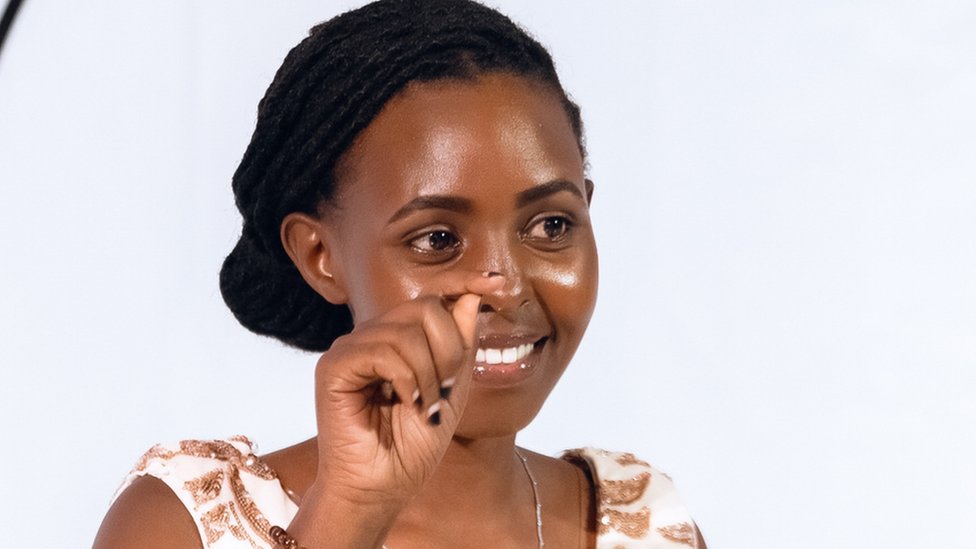
“During my journey into the miss Rwanda competition, I had a winning spirit in mind, keeping my fears away, and having faith in myself. One thing I feared most was the scenario when I would be stigmatized during the boot camp but it never happened.” She says.
I advise my fellows who would want to go to greater heights to believe in themselves, pray and be proud of themselves they will make it.
A 28 years old Iradukunda Shemsa who was born with cognitive disability says, she’s the oldest member of the family she managed to walk when she was 5 years old and managed to speak when she was 6, she spent 7 years without going to school because every school she would try to attend she would get stigmatized and get fired from the respective school.
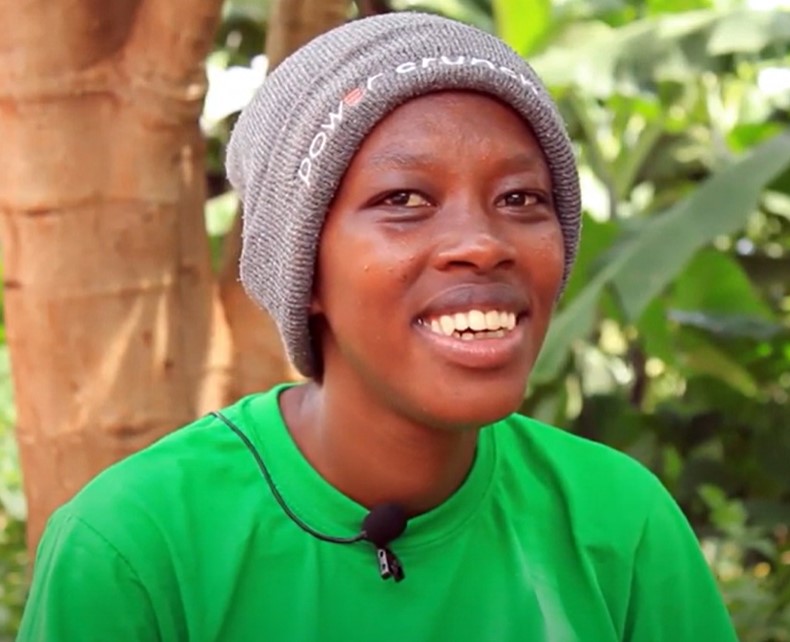
“I have a long history of my past life but, I went to study in Muhanga, my life changed completely after years of negligence by the society. I studied in a school which teaches theatre and drama to date the profession helps me to make a living as an international performer.” Shemsa recounts.
Iradukunda recounts that she was first stigmatized by her own family like throwing on the floor her food for her to eat, but since she managed to learn how to act and perform in arts, theatre and acting movies she has managed to develop her career and she makes money out of it.
She also advises parents who marginalize, stigmatize their children with disabilities not to do so since the children also have potential and talent to live the fullest of their product lives as citizens of the country.
Government and Civil Society Initiatives
The Rwandan government has taken commendable steps towards inclusivity, implementing inclusive education policies and social support programs. Additionally, the role of non-governmental organizations and civil society in advocacy and support cannot be understated. Their concerted efforts drive the momentum towards a more inclusive society.
Murwanashyaka Evariste, Head of Programs and National Child Rights Observer in CLADHO, said that they primary focus is advocating for the rights of children with disabilities, especially in the realm of education. The first message they convey to parents is that these children have equal rights and opportunities when it comes to education. It’s crucial for parents to acknowledge and support their children’s educational rights.
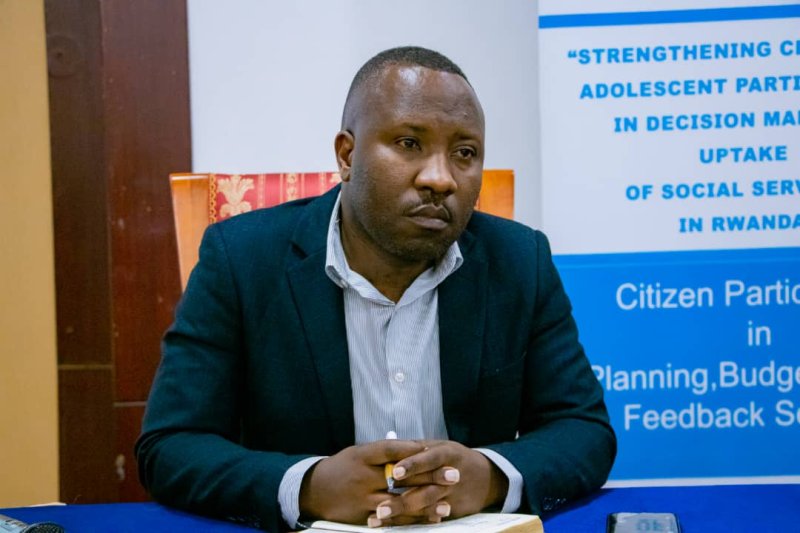
“We work closely with the local government to ensure that children with disabilities receive the necessary support for their special needs, including access to education and transportation facilities for those who require assistance.
Our emphasis lies in creating awareness among parents about their children’s educational rights and involving the local government to guarantee that these children not only have access to education but also receive the necessary provisions for their specific requirements.
One of our key initiatives is promoting educational inclusivity, which has significantly eased access to education for these children. The government’s ‘education for all’ incentive has been instrumental in enabling children with disabilities to access education seamlessly and ensuring their proper education.”
He added that their goal is to continue collaborating with the government and local communities to further improve inclusivity in education. By persistently advocating for the rights of children with disabilities and fostering partnerships, we aim to create a future where every child, irrespective of their abilities, has equal access to quality education and support necessary for their holistic development.
Ensuring Equal Opportunities
Looking forward, Rwanda is committed to ensuring equal opportunities for every child. Efforts are underway to bridge educational gaps, enhance infrastructure, and foster a more inclusive environment. The aspirations and dreams of these children remain at the forefront, driving initiatives that pave the way for a brighter, more equitable future.
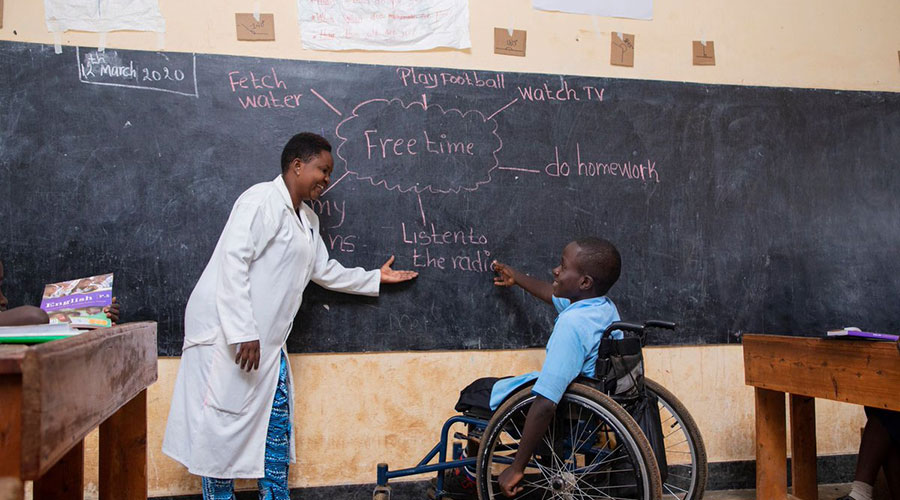
In conclusion, the journey of children with disabilities in Rwanda embodies resilience, determination, and the pursuit of inclusivity. While challenges persist, the collective efforts of government, civil society, and communities are paving the way for a more inclusive society, where every voice is heard and every child, irrespective of ability, is empowered to realize their full potential.





